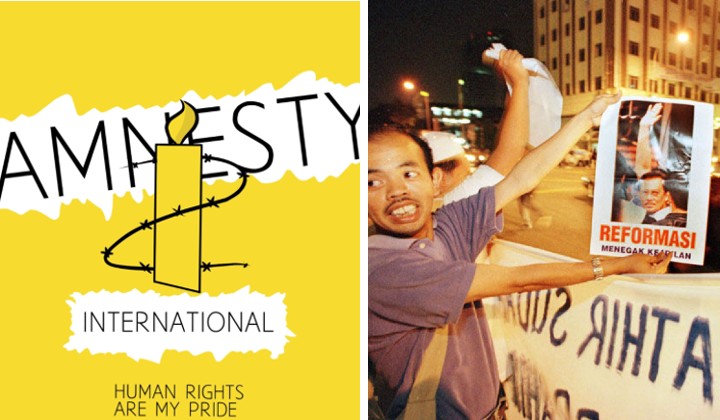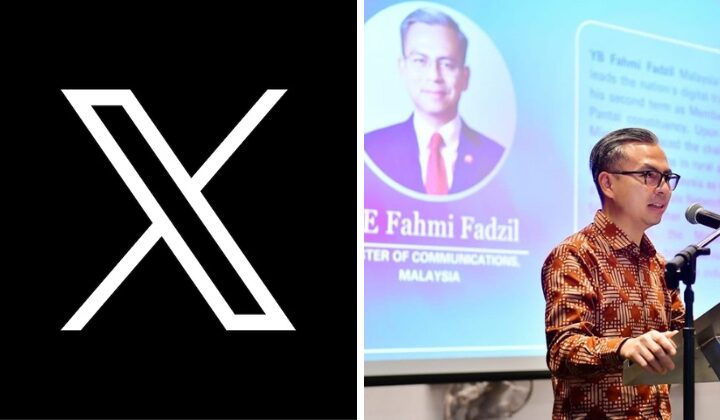What Is The Sedition Act And Why Many Want It Gone?
Human rights advocate group Suaram has called for the Sedition Act to be repealed due to its draconian nature.

Subscribe to our FREE Newsletter, or Telegram and WhatsApp channels for the latest stories and updates.
A human rights advocate group, Suara Rakyat Malaysia (Suaram) has called for the Sedition Act to be repealed, citing its blatant infringement on international standards of freedom of expression.
The Sedition Act has been criticised for being a draconian law; its vague definitions and disproportionate penalties open for the law to be abused by authorities to stifle dissent.
The amount of “power” given under the Sedition Act has people comparing it to the days of the Internal Security Act (ISA). The ISA was a law that allowed indefinite detention without trial. The ISA has since been abolished in 2011.
In July 2012, former prime minister Datuk Seri Najib Razak said he would repeal the Sedition Act because it “represents a bygone era.” The plan was to replace it with the National Harmony Act.
The National Harmony Bills consist of the Racial and Religious Hate Crimes Bill, the National Harmony and Reconciliation Bill, and the National Harmony and Reconciliation Commission Bill.
The Racial and Religious Hate Crimes Bill specifically targets hate speech, something which is absent in the Sedition Act.
Najib said the National Harmony Act would be better equipped to “manage our national fault lines” and strengthen cohesion by protecting national unity and nurturing religious harmony.
However, it was said that Najib faced mounting opposition from hardliners within his coalition, who preferred more favourable policies over other races and religions.
When Datuk Seri Anwar Ibrahim became prime minister, he defended the Sedition Act in cases involving the royalty.
Yes, fundamentally, we avoid the use of the Sedition Act. However, when it comes to matters concerning the positions of the rulers … when it comes to the position and dignity of the rulers … this is something we should uphold and prevent from turning into unhealthy political discourse.
Prime Minister Datuk Seri Anwar Ibrahim
What is the Sedition Act?
The Sedition Act was introduced by the British colonial government in 1948 against local communist insurgents.
The act was amended through an Emergency Ordinance 1971, after the riots in May 1969. Since then, the act has been expanded over the years until the definition is too vague to be useful or responsible.

What does the Sedition Act entail?
The Sedition Act supposedly targets any “seditious” acts. Seditious acts include any act, speech, words, publication, or anything that brings contempt against the government or Malaysia’s royalty.
The act also prohibits anyone from inciting hatred between different races and religions or questioning the special rights of the ethnic Malays and natives of Sabah and Sarawak.
The loose terms make it difficult to properly define which comments can be deemed seditious.
Anyone guilty of sedition could face fines and jail terms of up to three years.
The Sedition Act has been primarily used against opposition politicians, journalists, students, and academics.
Who have been its targets?
To date, Human Rights Watch estimates that at least 14 people have been charged with sedition since 2013.
Some of the individuals charged under the Sedition Act are:
1. Prime Minister Datuk Seri Anwar Ibrahim faced a charge over a speech made criticising the government during a political rally in March 2011.
2. Azmi Sharom, a Universiti Malaya law lecturer for his statements on the Selangor Menteri Besar crisis.
3. N. Surendran, former Padang Serai MP and PKR vice-president, for a statement uttered regarding Datuk Seri Anway Ibrahim’s sodomy appeal. His first sedition charge was over statements regarding the judgement of the appellate court in Anwar’s second sodomy case in a YouTube video. He was formerly Anwar’s lawyer.
4. R.S.N. Rayer, former DAP’s Seri Delima assemblyman, over vulgar remarks against UMNO during the Penang state assembly.
5. Khalid Samad, former PAS’s Shah Alam MP, over remarks on Selangor Sultan and the Selangor Islamic Affairs Council (Mais).
6. Teresa Kok, DAP’s Seputeh MP, over a satirical video she was featured in that allegedly insulted the Malay community and the Muslims.
7. The late Karpal Singh was found guilty of sedition when he questioned the Sultan of Perak’s action in removing Mohammad Nizar Jamaluddin as the Menteri Besar of Perak in 2009.
8. Tian Chua, former PKR vice-president, and four activists were charged for uttering seditious words during a forum. The four are PAS member Tamrin Ghafar, Anything But Umno (ABU) founder Haris Ibrahim, Solidariti Mahasiswa Malaysia president Safwan Anang and Hishamuddin Rais.
9. Rafizi Ramli, former PKR vice-president and Pandan MP, was investigated for his remarks purporting Muslim groups threatening to demonstrate outside churches. He was later charged under the Penal Code for inciting public disturbances instead.
10. Nizar, former Perak MP and Changkat Jering assemblyman, was charged with criminal defamation of Najib.
11. Zunar (real name Zulkifli Anwar Ulhaque), a local political cartoonist, faced nine counts of sedition in 2015 for criticizing the imprisonment of Anwar on Twitter. All charges were later dropped.
Are there any countries that have repealed the Sedition Act?
The other Commonwealth countries that repealed sedition laws include:
- Kenya
- Ghana
- New Zealand
- Jamaica
- Maldives
- Sierra Leone
- Pakistan
- Singapore
- India
Some countries such as Australia and Canada opted to amend or narrow the definitions of their sedition laws.
Share your thoughts with us via TRP’s Facebook, Twitter, Instagram, or Threads.





